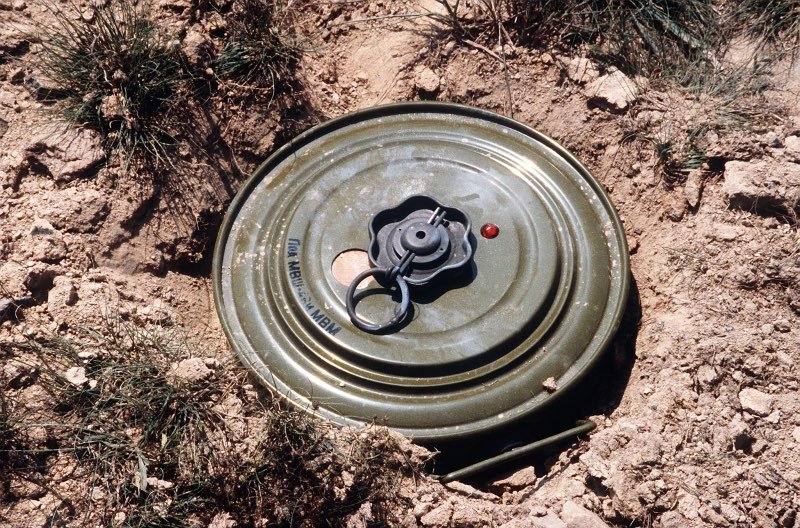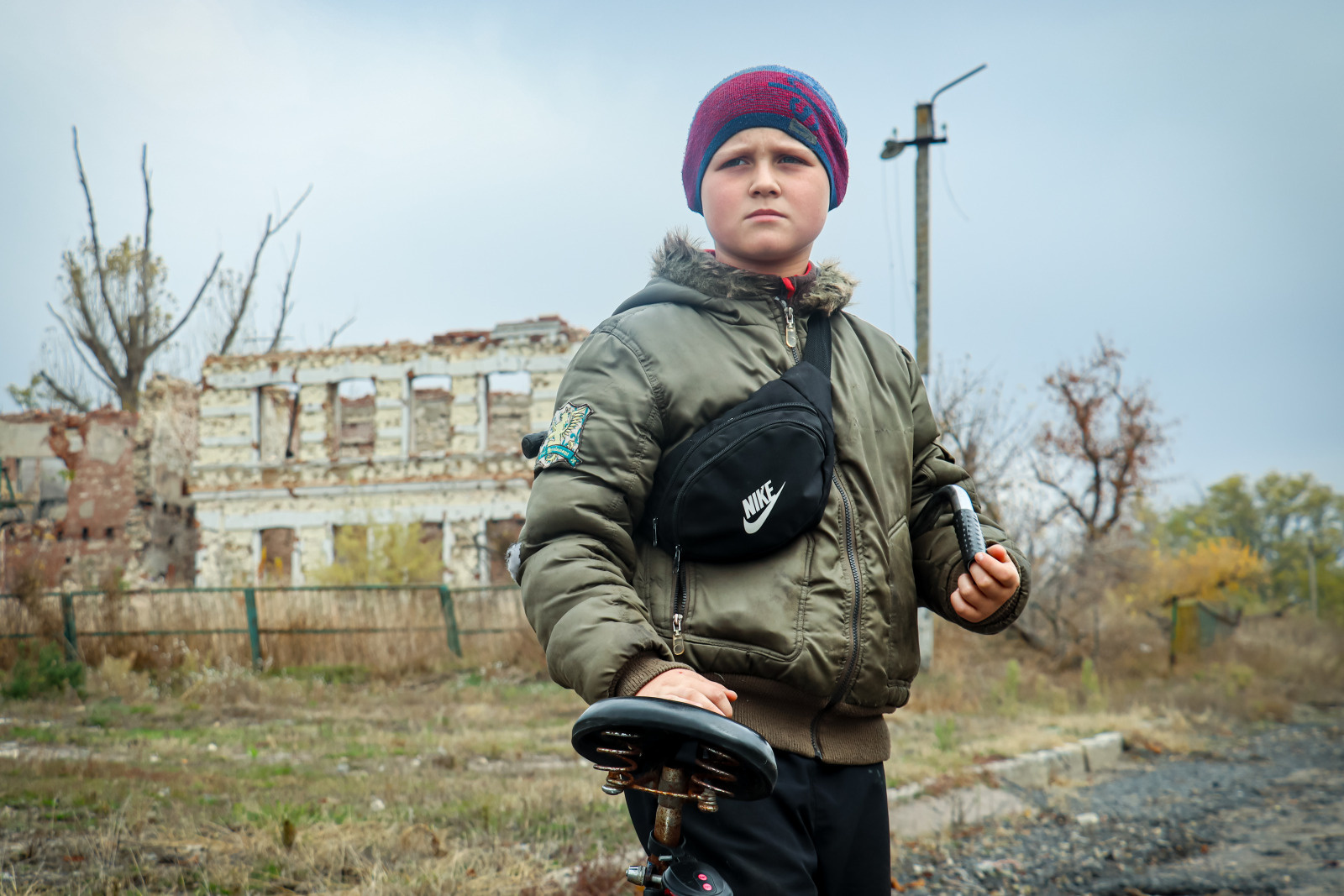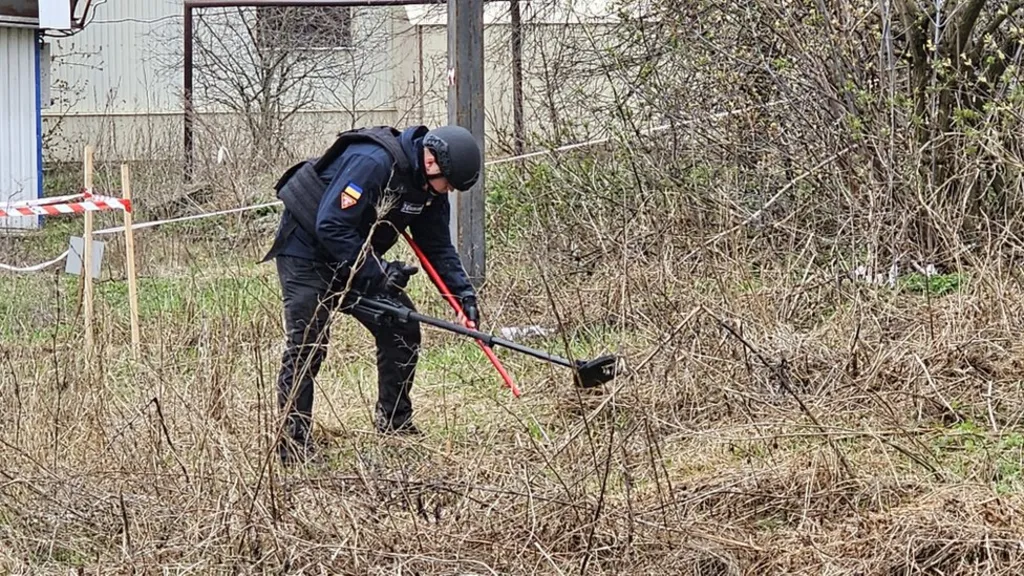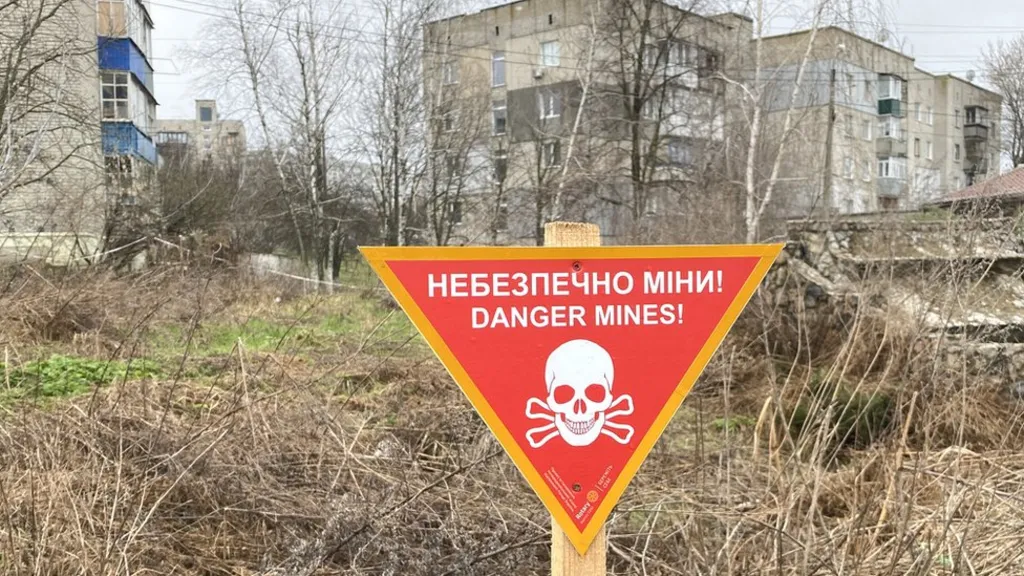Russian Eco-Terror
 |
Source
wikicommons
|
"Scattered from aircraft or delivered by mortars, the 'petals' spin through the air, bite into the earth and explode upon contact with as little as 5 kilograms of weight."
"Hectare by hectare, Russia's invasion turns barren the country which contains almost a quarter of the world's chernozem, a highly fertile soil."
"Even after the contaminants are removed, the toxins they release will affect the fields' fertility for years."
Dr. Sasha Dovzhyk
"We are living on borrowed time when it comes to nuclear safety and security at the Zaporizhzhya Nuclear Power Plant.""Unless we take action to protect the Plant, our luck will sooner or later run out, with potentially severe consequences for human health and the environment."Rafael Mariano Grossi, director general, IAEA"In many aspects, demining the territory of the Ukrainian state has been the biggest challenge since the Second World War.""During the war with Russia, which has now lasted for more than 600 days, more than 650,000 mines and explosive devices have been found and neutralised.""It should be expected that many more will be discovered, provided that a comprehensive survey of the liberated territories is feasible.""The cost of these activities is beyond Ukraine’s equipment, personnel and financial capabilities."Krzysztof Nieczypor, Centre for Eastern Studies
 |
| Ukraine says 724 people have been blown up by Russian mines since the invasion began last year BBC |
The bane of any conflict; the threats posed to civilian populations by mines left behind by departing armies, of vast numbers just awaiting the opportunity to explode when a farmer goes out to his fields, when children are playing nearby and trip unexploded ordnance, when civilians take short-cuts through fields to save time and lose limbs or their very lives. Not to mention the threat to wildlife or to domestic farm animals triggering mine explosions.
The vast landscape of one of the largest national geographies in Europe has become a landmine threat to the embattled country's civilian population. According to researcher Dr. Sasha Dovzhyk who spoke recently at the Ukrainian Institute of America in New York City, Russian planes or artillery have dropped small landmines called 'little petals' (PFM-1s) liberally across 156,000 square kilometres. In effect, contaminating fully one quarter of Ukraine's territory.
 |
| The youngest participant in these awareness sessions is 11-year-old
Nazar. What was once his school has been bombed a dozen times over the
last two years. He says he has already come across explosive remnants in
his village; he has even seen some explode right before his very eyes.
Both curious and frightened, he points to the remnants of explosive
devices littering the village's narrow streets, hidden in the grass or
marked with a white ribbon (an unofficial warning sign): Humanity and Inclusion |
Removal of the landmines, while underway, is a laborious and dangerous process, one that will take years to accomplish at the cost of billions. In the interim, while the demining process proceeds, it is estimated that hundreds of thousands of people and animals will suffer serious injuries or lose their lives. Ukraine has become the world's largest minefield. Russia has, both present and in the past, given Ukraine gifts it could happily live without.
Back in 1986 the nuclear reactor at Chornobyl suffered an explosion as a result of incompetent handling when radioactivity spread across the country as well as throughout parts of Europe in general. To the present, the affected geographic area is still shut off for residents' return. 90 kilometres' distant from Kyiv, the area remains a no-go with a massive steel-and-concrete structure hulking protectively over and encasing the destroyed reactor.
Following the February 24 invasion of Ukraine in 2022, Russian troops took possession of Europe's largest nuclear complex -- the Zaporiszhia Nuclear Power Plant -- Ukraine's largest. Ever since, the Plant's operations have been under the command of Russian military officials. The IAEA is concerned that maintenance of the plant is inadequate, with insufficient power and water to ensure plant safety in cooling the reactors.
 |
| In Ukraine, an area of land larger than England, Wales and Northern Ireland combined is littered with mines BBC |
Russian-occupied Nova Kakhovka dam was blown up in June 2023, 130 kilometres from the Zaporizhzhia Plant, reducing water levels in the reservoir cooling the reactors to the point that water is now pumped in from local wells. Of huge concern internationally and in Eastern Europe in particular is the potential for the Plant to explode, leading to a meltdown causing a massive fire and explosion, releasing radiation over European geography.
Dr. Sasha Dovzhyk explained conditions at the Nova Kakhovka dam in her address; that it represented the "first ever" intentional dam explosion. "Ecocide on this scale should be a crime in the International Criminal Court and isn't yet", she stated. As for Ukraine's landmine scarring, its landscape is also scarred from innumerable, unending Russian bombing attacks.
 |
| Russia has laid down mines to defend positions and slow Ukraine's counter attacks BBC |
"Two dozen experts who spoke with Reuters, including soil scientists, farmers, grain companies and analysts, said it would take decades to fix the damage to Europe's breadbasket -- including contamination, mines and destroyed infrastructure - and that global food supplies could suffer for years to come.""Shelling has also upset the delicate ecosystems of micro-organisms that turn soil materials into crop nutrients such as nitrogen, while tanks have compressed the earth, making it harder for roots to flourish, the scientists say."Indian broadcast network NDTV
Labels: Bombing Ukraine, Demining Actions, Everpresent Danger, Land Mines, Russian Invasion of Ukraine, Ukraine's Nuclear Power Plants
0 Comments:
Post a Comment
<< Home